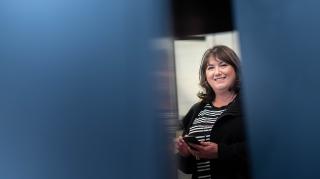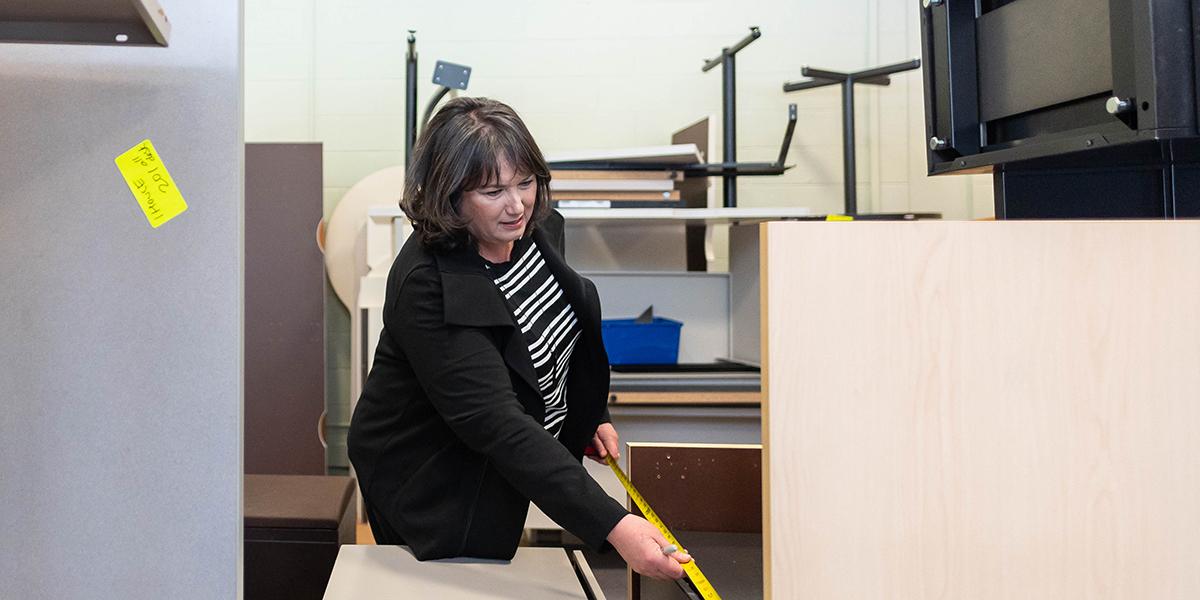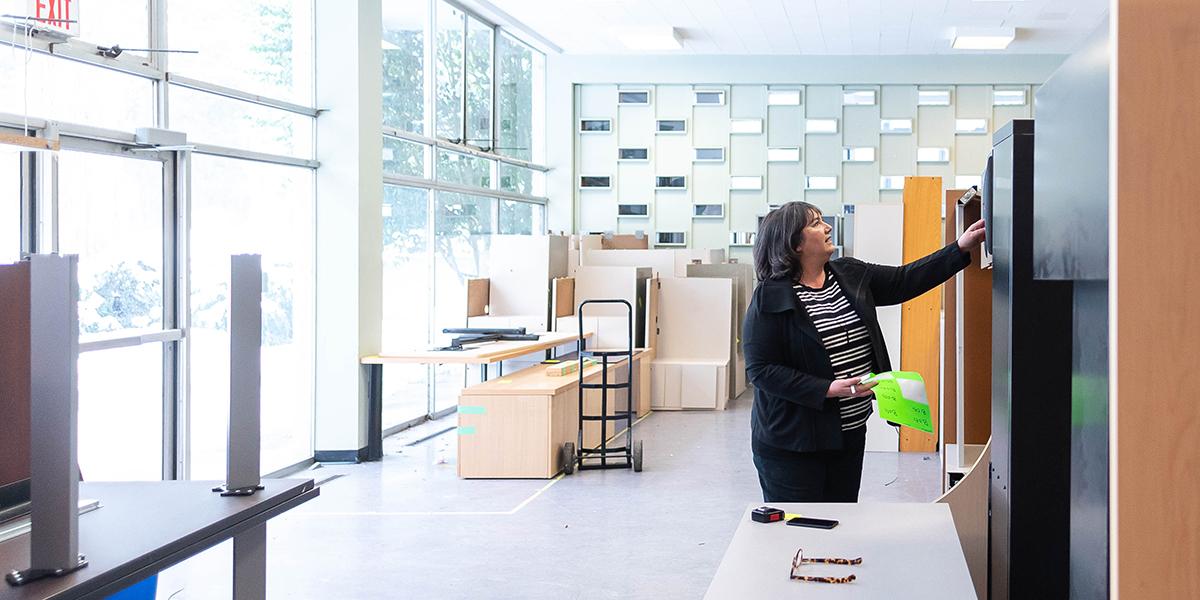Keeping UBC's used furniture out of landfill


Since Leigh Clark joined UBC Vancouver as a Facilities Planner in the Department of Infrastructure Development just two years ago, she has successfully identified and implemented a solution for keeping redundant furniture out of landfill and putting it to use elsewhere at the university.
Over the past 18 months, Leigh has found new homes for approximately 700 used items — mostly chairs, bookcases and desks — saving UBC approximately $350,000 that it might otherwise have spent on new furniture.
Leigh’s explanation for her rapid progress is simple: “The right person in the right place at the right time.”
Leigh describes “the right person” as someone who understands furniture — how people use it, where to place it to meet building codes, and how to ensure that it fits into the long-term plan for university facilities.

“Throughout my career, I have had a lot of experience assisting people who wanted to change the use of existing space or program new space,” she explains. “Furniture planning is a big part of office space design.”
Leigh studied architectural technology in her native country, New Zealand, and interior design at Ryerson University in Toronto. Since moving to Canada in the early 1980s, she has worked with a number of organizations to help them efficiently use their spaces, including Capilano University, where she recently helped plan its new Centre for Student Success.
As for “the right time,” Leigh happened to start her position at UBC just when the VP Finance and Operations office on the 6th floor of Koerner Library was about to undergo an extensive renovation. Some of the work stations being replaced were only three years old at the time, and the office wanted to ensure that they didn’t end up in landfill.
With her background and expertise, Leigh was at the ready to take on the challenge.
She started to put out feelers for how this furniture could be repurposed. When people got wind of Leigh’s efforts, calls started coming in from across the university, from people who either wanted to get rid of furniture or acquire something new.
“Preventing furniture from going to landfill was obviously on a lot of people’s minds,” says Leigh. “But until then, they didn’t know what else they could do with it. Once my name was attached to creating a solution, everything snowballed!”
“All I could see was an avalanche of used furniture making its way toward me,” says Leigh. “I needed to create a more formalized way of dealing with surplus furniture before it buried me.”
“All I could see was an avalanche of used furniture making its way toward me. I needed to create a more formalized way of dealing with surplus furniture before it buried me.”
Leigh Clark

And lucky enough, she was in “the right place” — UBC. In addition to having an incredibly supportive director who allowed her to move the project from the side of her desk into her day job, she found additional support from the SEEDS Sustainability Program. After applying to SEEDS, Leigh was quickly matched with an undergraduate marketing student in her final year at the Sauder School of Business: Carissa Kirk. Carissa had prior involvement in sustainability initiatives, having worked as a zero-waste events coordinator organizing furniture for reuse at the Gage Residence.
The SEEDs collaboration allowed Leigh and Carissa to work together to gain a greater understanding of best practices around furniture reuse (you can read Carissa’s report, entitled Office Furniture Reuse at UBC: How UBC can become an institution that sends no office furniture to the landfill). Their work also led them to adopt a new tool that will support Leigh’s efforts in tracking UBC’s inventory of used furniture and matching it to meet the needs of different teams.
“Through our research, we discovered that the university can potentially save large sums of money every year if all of UBC’s redundant furniture is reused,” explains Leigh.
“So, if you have furniture you no longer need, or are looking for new items for your office space, send an email to furniture.reuse@ubc.ca,” invites Leigh. “I will happily work with you to help you save money, and keep that furniture out of landfill!"
|
Delivered by the Campus + Community Planning team, the Social-Ecological Economic Development Studies (SEEDS) Sustainability Program directly supports UBC’s efforts to advance sustainability and contribute to international commitments. As the largest and most comprehensive initiative of its kind, SEEDS has received international recognition through several awards, and the model has been replicated across several universities in North America and Europe.
Since its launch in 2000, SEEDS has engaged more than 9,500 senior undergraduate and graduate students, faculty, staff and community working in partnership on innovative research projects to advance UBC's ambitious sustainability commitments, while also addressing critical societal issues.
The program has delivered more than 1,800 publicly-accessible research reports, implemented over 1,000 sustainability projects, and informed 45 UBC sustainability plans, policies, strategies and frameworks. Learn more.
Find the latest news, updates, events, and useful dates from across UBC, curated for faculty and staff by Internal Communications.
Access a library of resources from multiple UBC websites, all in one place.